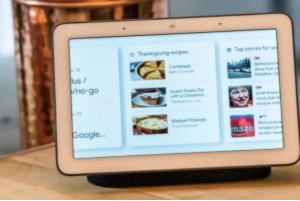
In this project, we deployed Google Home Hubs to (so far) 10 dyads of older adults with MCI and their care partners. People with MCI experience more difficulties with memory and decision making compared to others their age. About 20% of adults over 65 will get MCI and of those, 80% will progress to Alzheimer's disease or dementia. Many people with MCI are aging in place and rely on their spouses or adult children to act as care partners for them. We logged the CA interactions of the people with MCI and their care partners over 10 weeks and then analyzed the resulting corpus of nearly 4000 interactions. Care partners logged roughly double the number of interactions as people with MCI, and had more varied usage, but people with MCI also used the CA fairly regularly. We interviewed the dyads and surveyed individual participants about their preferences in receiving automated assistance. After our initial deployment, we are now preparing to start the second cohort of 10 dyads, to see if we can recreate the encouraging results we found in the first group, and to see if we can further improve the participants' experience using the CA. In this work, we have found that empowerment means different things to the different stakeholders involved, and we have seen how the CA specifically supports these individual paths towards empowerment. For people with MCI, the CA can provide comfort, entertainment, social presence, and useful information. Care partners are empowered by CAs because they are able to scaffold interactions in advance that support more independence for the person with MCI. For example, a care partner may add information into the CA calendar that the person with MCI can ask about later, without needing to nag the care partner. There are of course challenges in this work, as some of our participants with MCI could not remember the CA was there, while others had trouble finding the words to initiate conversations. While we provided various training materials to support successful usage, more work will be required to provide support for the more complicated interactions. This research is situated within a larger research program called the Cognitive Empowerment Program (CEP), which strives to empower people going through mild cognitive impairment and their families through structured programming, social interaction, therapy and more.
Video Demo of the project - https://www.youtube.com/watch?v=AjrFqBmVIF4
Training Materials -
What can Google Home do
Google Home Cheat Sheet for Members and Caregivers
